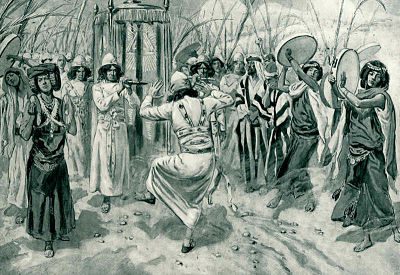 Christians need to stop attacking happiness.
Christians need to stop attacking happiness.
I don’t know how it got started, but sometime in my teenage years (so long ago that Scooby Doo was new programming) pastors starting attacking happiness and telling us we needed joy. Since I was a CS Lewis fanatic, this first seemed cool (Surprised by Joy) and then confusing. The inner longing that Lewis describes as joy does find resolution in God, but as Pilgrim’s Regress argues, only by passing away.
Joy, as CS Lewis uses it, leads a person to God through longing, but like faith and hope, pass away in the Love of God.
This is not, I decided, what these radio preachers meant. They were calling the deep inner peace and contentment that comes from God “joy” and the good feelings this life can give us “happiness.”
As far as it goes, this advice is sound: do not live for good feelings. Sometimes we should feel bad, especially when bad things happen or we do bad things. After all, if you can see a homeless person under a Houston overpass and retain all your “happy” feelings, then you might feel good, but you are a bad man. This is true, but there was a problem. This is exactly what Plato and other Greek philosophers meant by happiness!
Plato cautions Athenians that to be happy is to flourish: body, soul, and mind. You cannot be happy and unjust. In fact, piety is part of being a good person and Socrates, the main character in most Platonic dialogues, is a pious man. By the end of Republic, Plato is urging us to live a good life for the sake of the good, but also because this will lead to a better life after death. The world to come can be eternal torment (if one is a tyrant) or it can be great pleasure. Plato’s pleasures are “divine” and not “earthly.”
Now Plato is no Christian, but still his view of happiness is not some mindless pursuit of earthly pleasures. While the Greek vocabulary deployed by Plato and the New Testament writers is different, I can find no reason to think Plato’s view of happiness is incompatible with Biblical happiness (gladness) or for any strong distinction between happiness and joy. Of course, we want joy that comes from God and not from the world, the flesh, and the Devil, but this joy is happiness! If you think happiness is the superficial kind, then best Greek philosophy and the New Testament rebuke you. If you think you can only find happiness in higher things, then some Greek philosophy and the New Testament sort-of-agree.
We cannot be happy without God. He is the ground for happiness, but He gives us happiness through different means: feasts, streets of gold, each other, songs. “Religious” happiness is from God, but so is marital bliss . . . if we understand what is happening when we love our spouse! Of course, we might think an idol sent us our religious happiness and so pervert this happiness to sorrow or that marital bliss is “secular” and so turn it into a bad thing or an even an idol! Any pleasure that is cut off from God is condemned by some and worshipped by others.
When David danced before the Lord, he felt God’s presence. That is sublime, but he was also dancing and that is good. He was happy for many reasons: some “high” and others “low,” but (most) good. His wife looked down in disdain at the physical aspects, the “low” or superficial things he was doing. She might as well have been a modern preacher. She would have accepted some abiding, sedate “joy” in the Lord, but this jolly, exuberant, happiness was irritating.
How can we avoid the false happiness (“Buy now!”) to find real happiness and joy?
The solution is to turn to God: the source of all joy. In any case, there is no reason to lose the perfectly good word “happiness” and good reason to keep it. First, it has a long usage in history. When the American founders talk about the “pursuit of happiness,” many are referring to the Christian and Greco-Roman philosophical tradition that saw happiness as human flourishing and human flourishing coming in right relationship to Nature and Nature’s God. Second, being happy is pleasant and there is no reason to give any pleasure to the Devil. Surely we can misunderstand a pleasant feeling or make more of it than there is, but even the “lowest” form of happiness is grounded in God, is good, and has a place. Finally, I cannot find any basis in Greek (Platonic or NT) for a strong distinction between “happiness” and “joy.” I would be curious if anyone can point me to support from scholars for the distinction. What is the Greek for joy that is distinct from the Platonic happiness?
Until I hear a better argument . . . I will be happy even in small things (games! treats!) and use this to find great, internal happiness (philosophy! marriage!), and then rest in God. My goal is not to be small minded, but to live for happiness that is joy.











